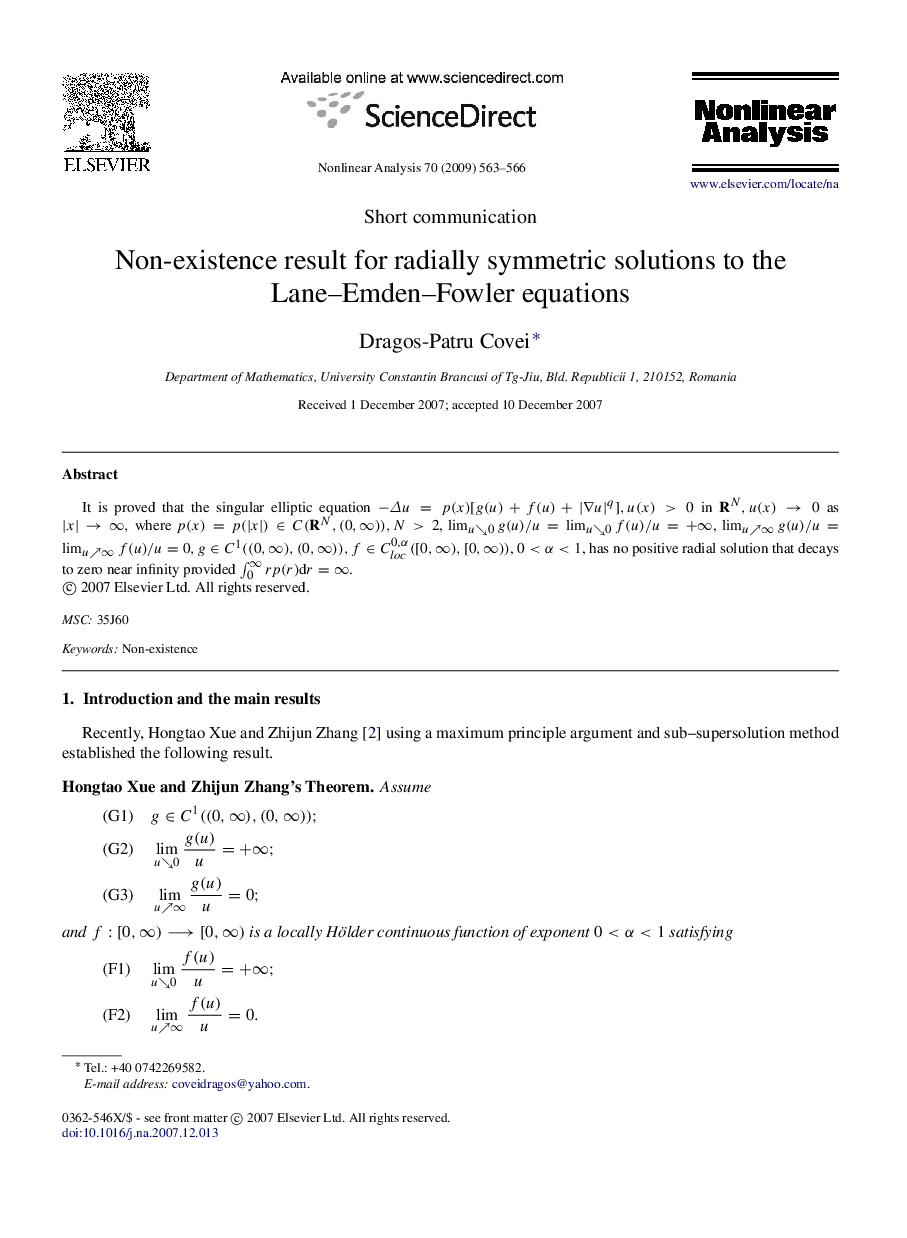| Article ID | Journal | Published Year | Pages | File Type |
|---|---|---|---|---|
| 843503 | Nonlinear Analysis: Theory, Methods & Applications | 2009 | 4 Pages |
Abstract
It is proved that the singular elliptic equation −Δu=p(x)[g(u)+f(u)+|∇u|q],u(x)>0−Δu=p(x)[g(u)+f(u)+|∇u|q],u(x)>0 in RN,u(x)→0 as |x|→∞|x|→∞, where p(x)=p(|x|)∈C(RN,(0,∞)),N>2N>2, limu↘0g(u)/u=limu↘0f(u)/u=+∞limu↘0g(u)/u=limu↘0f(u)/u=+∞, limu↗∞g(u)/u=limu↗∞f(u)/u=0limu↗∞g(u)/u=limu↗∞f(u)/u=0,g∈C1((0,∞),(0,∞))g∈C1((0,∞),(0,∞)),f∈Cloc0,α([0,∞),[0,∞)), 0<α<10<α<1, has no positive radial solution that decays to zero near infinity provided ∫0∞rp(r)dr=∞.
Related Topics
Physical Sciences and Engineering
Engineering
Engineering (General)
Authors
Dragos-Patru Covei,
